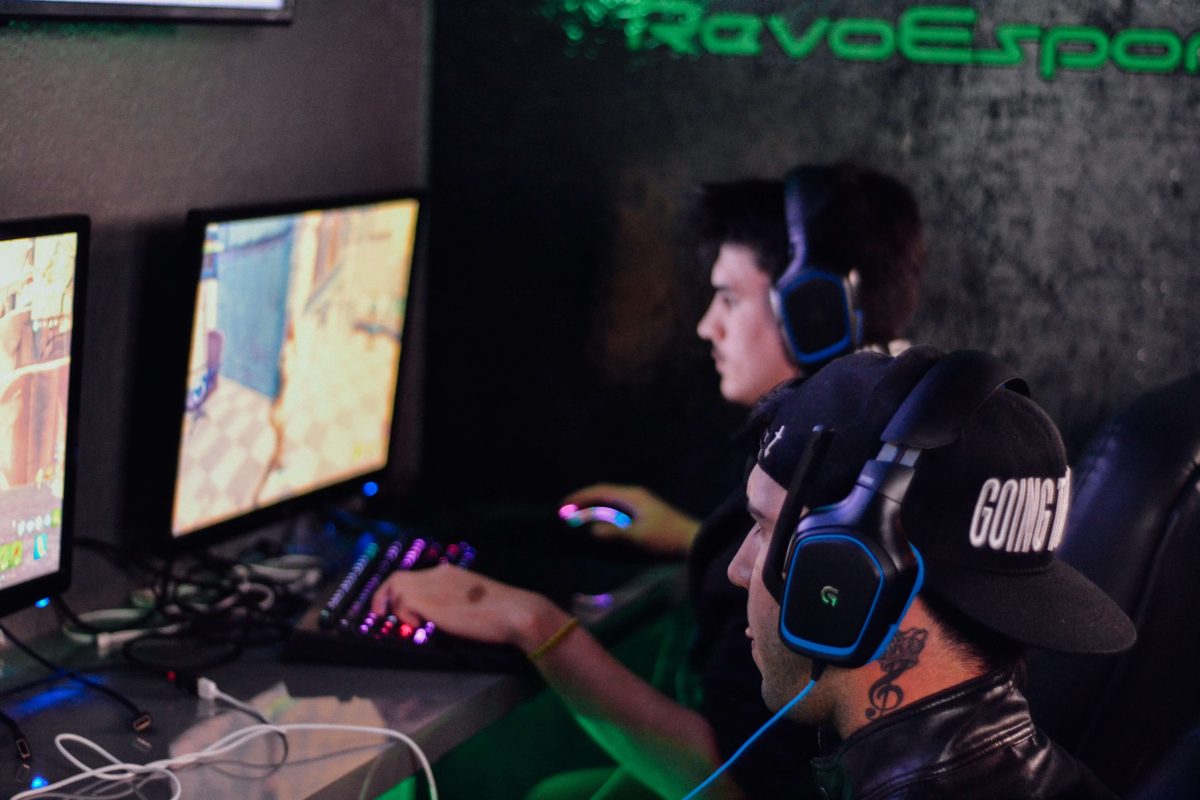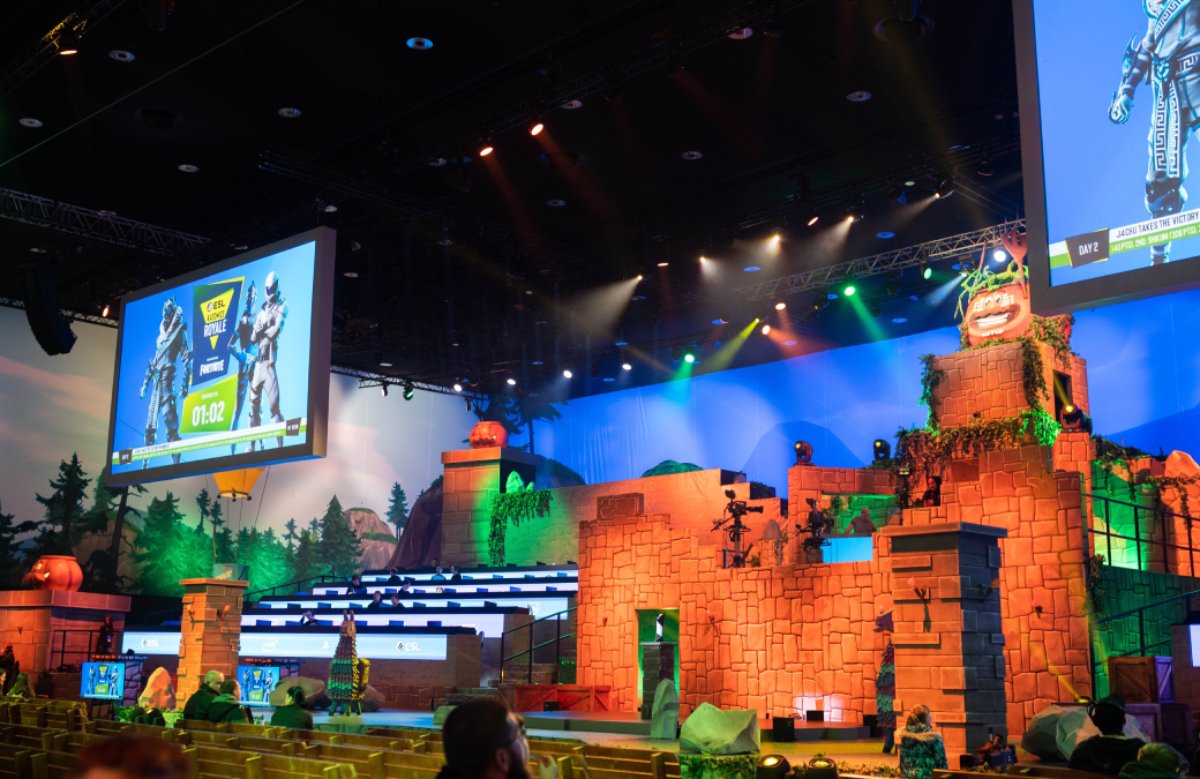TEN blogs
What makes the esports industry?


So what’s the difference between video gaming and esports?
The best way to think about gaming and esports is the difference between playing football with your friends at the weekend and playing in the Champion’s League. Video games can often be competitive but in general this is individual people or groups of friends. You can go into gaming just for the fun of taking part, and while winning is fun, it’s often not the main point.
Esports is when the competition gets organised, with schedules, prizes and established teams. It can be anything from amateur or semi-pro tournaments organised by communities to full-blown professional events run by major tournament organizers or directly through the game developers.
The reality is that esports is an entirely separate industry, and although video gaming is by far the ‘bigger brother’ out of both industries, esports is growing at a massive rate. Esports is a wide-ranging group of specialist businesses, running parallel to video gaming and all coordinating to create the competitive side of the gaming world.
What areas are there in the esports industry?
To help understand how the esports industry works, we’ve broken businesses down by function, although it’s important to remember that most companies will have more than one function. Tournament organizers can have their own tournament platform, an esports team may have their own media outlet and so on.
Esports Teams

Photo by Alex Haney on Unsplash
An esports team can be anything from 3 players with a team name and a logo, competing in semi-pro tournaments, to massive global organisations who compete with dozens of players across multiple games at the pro level.
At the larger end of the scale, esports teams are major companies with strong branding, training facilities, offices full of teams and support staff, their own merchandise brand, a huge fan base and high-tier sponsorship deals with world class brands. Some of these teams are even publicly traded, and several have valuations reaching into the hundreds of millions of dollars.Some well-known esports teams:
Tournament Organizers
Like esports teams, tournaments in esports have grown to massive levels over a relatively short time, and the largest events have now overtaken many of the more minor traditional sports in viewership, prize pools and general scale. To make these run you have a whole army of people involved, and tournament organizers are at the core of the whole operation.
Tournament organizers act as the builders and administrators of an esports event, creating the event concept, handling tournament administration, managing teams, securing partnership and sponsorship deals and more. They also coordinate event promotion, live broadcasting, and many other factors using either in-house or external specialists. All of this can be for running a tournament for a brand or acting as an independent tournament operator.
Tournament Platforms
A unique restraint to running an esports tournament is that in almost every case, there are hundreds or thousands of competitors for a single event, often scattered across the world. Managing these numbers manually is a near-impossible task. This is why esports tournament platforms are essential for automating bigger online events and keeping the player experience smooth.
The most advanced platforms can include full automation of matchmaking, lobby creation and result submission, as well as building community hubs and providing a number of extra features to improve the experience such as built-in anti-cheat systems, ranking and statistics.
Esports Broadcast Production
When creating an esports tournament, bringing the action from the small screens to the audience, while including all of the extra stats, analysis and other info essential to follow the play, often requires a range of specialists. Broadcast production can range from a single streamer commentating online to a huge studio operation with multiple on-screen talents and teams of people behind the scenes.
Broadcast production companies can take charge of various elements, including the management of the talent for hosting, commentating and analysis, studio and camera setup, in-game feed plus all the other visual and audio assets needed for a professional esports production.On top of these services, these businesses are often a regional broadcaster who acquire media rights and produce localized content for a specific language or region, operating in a similar fashion to regional television services.
Esports Media
Between teams, events and more, there’s always something new happening somewhere in the esports world and news and data can go out-of-date extremely quickly. Fans, teams and businesses all try to get their hands on information as quickly as possible, and this is where media sites come in.
Esports media companies work with teams, tournament organizers, brands and data operators to bring out the most up-to-date news, predictions and game, team or tournament analysis. They usually have a multimedia approach, operating across written articles, video content, podcasts and social posts, and topics can include everything from live event coverage to player interviews to ‘how-to’ game guides.
What else goes into esports?
While the categories above can be seen as the core parts of the esports world, there are a huge number of other groups and businesses that have been built around that core.
Esports Arenas
When you’re talking about esports, the word arena means something a bit different to what sports fans may expect. Esports arenas aren’t giant open-air structures, but instead highly specialized and dedicated spaces for running esports tournaments and events.
These will usually have everything needed for esports in place, such as high-end gaming hardware and multiple independent network systems, as well as a ready-to-go stage and live production facilities, providing organizers with ready-made locations.
Bootcamp Facilities
In esports, sometimes training remotely just isn’t the best option. That’s where bootcamp facilities come in, offering a dedicated space for teams and players to stay and play together in person. It can range from dedicated hotel rooms to massive training facilities for multiple teams at once.
At the top end, bootcamps can offer on-site accommodation, catering, gyms, studios and more, on top of fully decked-out training rooms with all the latest gaming equipment. Some even offer training courses for players and staff as an extra service.
Esports Data Operators
The sheer amount of data generated by esports blows any traditional sport away. This is a 100% digital activity, so compared to football or basketball or any other major sports, the data is much more detailed and much easier to generate.
There are now a large number of data operators dedicated to processing, collating and then providing this data to consumers. Selling data rights generates a lot of revenue for tournament organizers, as various businesses will happily get as much data as they can to power odds generation for betting, performance analysis for teams or live coverage widgets for media outlets.
Associations and Federations
As the industry has grown and becomes more stable and regulated, there has been a need for groups to advocate and represent esports to the wider world. Associations and federations are non-profit organizations that are solely focused on this purpose.
These groups can work to promote esports as a whole, gain recognition of esports as an official sport, develop the industry in one region or country, or advocate for things such as fair treatment of teams and players.
So what’s next for esports?
The industry as a whole is growing at such a rapid rate that finding the exact service you need has become chaotic and challenging. What it needs is structure and someone to bring it all together, much like what we’re doing here at TEN. We’re bringing all these diverse businesses into one, simple-to-use directory and making it easier to make the right connections.
=====
If you represent a business from the esports or video gaming industries and you are reading this article, make sure that your company’s profile is already on the platform and that you own it.
Check out the business catalog, and also, don’t forget to subscribe to our social networks to stay up to date with the latest events and not to miss our next articles:
Have questions or feedback regarding this article? Get in touch with us on the platform!

